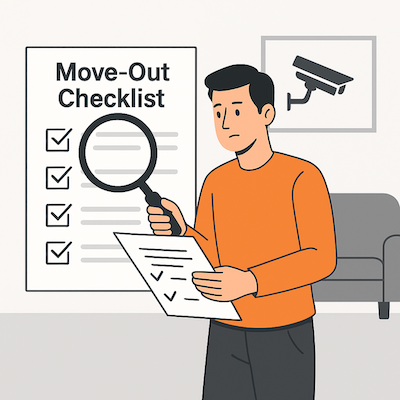
Getting Your Deposit Back: A Guide for Shared Housing Renters in Washington State
When you move into a shared home or rent a single room — whether it’s a room for rent in Tacoma or one of the many rooms for rent in Lakewood WA — you’re almost always required to pay a security deposit. That deposit is meant to protect the property owner from unpaid rent or damage, but it also represents money you’ll want to recover when your tenancy ends.
Understanding how deposits work under Washington law and what you can do to protect your refund can save you from costly misunderstandings later on.
1. Know What the Deposit Covers
Under RCW 59.18.260–285, a landlord can only deduct from your deposit for specific reasons:
- Unpaid rent or utilities,
- Repairing damage beyond normal wear and tear,
- Cleaning required to return the unit to its original condition (if the lease specifies cleaning responsibilities).
Normal wear and tear refers to deterioration from ordinary, careful use over time — the kind of aging that naturally happens even if a tenant is respectful and clean.
Examples include light scuffs on floors, fading paint, or minor nail holes.
However, if damage results from negligence, misuse, or pets, those costs can legally be deducted. For example, if a landlord installs new vinyl plank flooring and a tenant’s dog scratches or stains it within six months, that’s considered damage, not wear. Documentation, photos, and written reports protect both tenant and landlord in such cases.
2. Get a Written Move-In Condition Report
Washington law requires that tenants be provided with a written move-in checklist describing the property’s condition when they take possession.
- Review this form carefully before signing.
- Note any pre-existing damage, no matter how small.
- Take timestamped photos and keep them.
This report protects you later if there’s a dispute about what was damaged before move-in.
3. Maintain Shared Spaces — They Matter Too
In many shared housing arrangements, each resident signs their own rental agreement and pays a separate deposit. Even when contracts are independent, the condition of common areas such as the kitchen, bathroom, and living room still affects deposit returns.
If damage or neglect in a shared space can be reasonably linked to one person — for example, leaving food residue on countertops, breaking fixtures, or failing to clean up after cooking — the cost of repair or cleaning can legally be deducted from that individual’s deposit.
To avoid problems:
- Follow house rules for cleaning and maintenance.
- Clean your assigned kitchen and bathroom areas regularly.
- Don’t leave dishes or personal items blocking shared space.
- Report damage or misuse right away so it can be addressed fairly.
Maintaining these spaces isn’t just a courtesy — it’s a condition of tenancy and a key part of protecting your deposit.
4. Avoid Mid-Tenancy Deductions
Some leases allow landlords to deduct repair costs during tenancy for damage caused by neglect or misuse.
If something breaks or becomes damaged:
- Report it right away.
- Offer to repair or replace if appropriate.
- Avoid hiding or delaying repairs — small issues often become expensive ones later.
5. Communicate at Move-Out
Under Washington law, landlords must return your deposit (minus any lawful deductions) within 21 days of move-out and include an itemized statement showing why money was withheld.
You can make that process smoother by:
- Requesting a move-out walkthrough.
- Asking what needs cleaning or repair.
- Returning all keys and leaving your space broom-clean.
These steps show good faith and reduce disputes.
6. Keep Proof and Stay Organized
Always keep:
- A copy of your lease,
- The move-in inspection checklist,
- Receipts for cleaning or repairs,
- Screenshots or emails about maintenance issues.
If there’s ever a disagreement, these records can make all the difference.
Final Thoughts
Security deposits aren’t meant to be penalties — they’re financial protection for both renters and property owners. The best way to ensure a full return is simple: treat the home as if it were your own, follow shared-living rules, and keep clear records.
For renters seeking rooms for rent in Tacoma or rooms for rent in Lakewood WA, understanding your rights and responsibilities under Washington law can make shared housing smoother, fairer, and more financially secure for everyone.